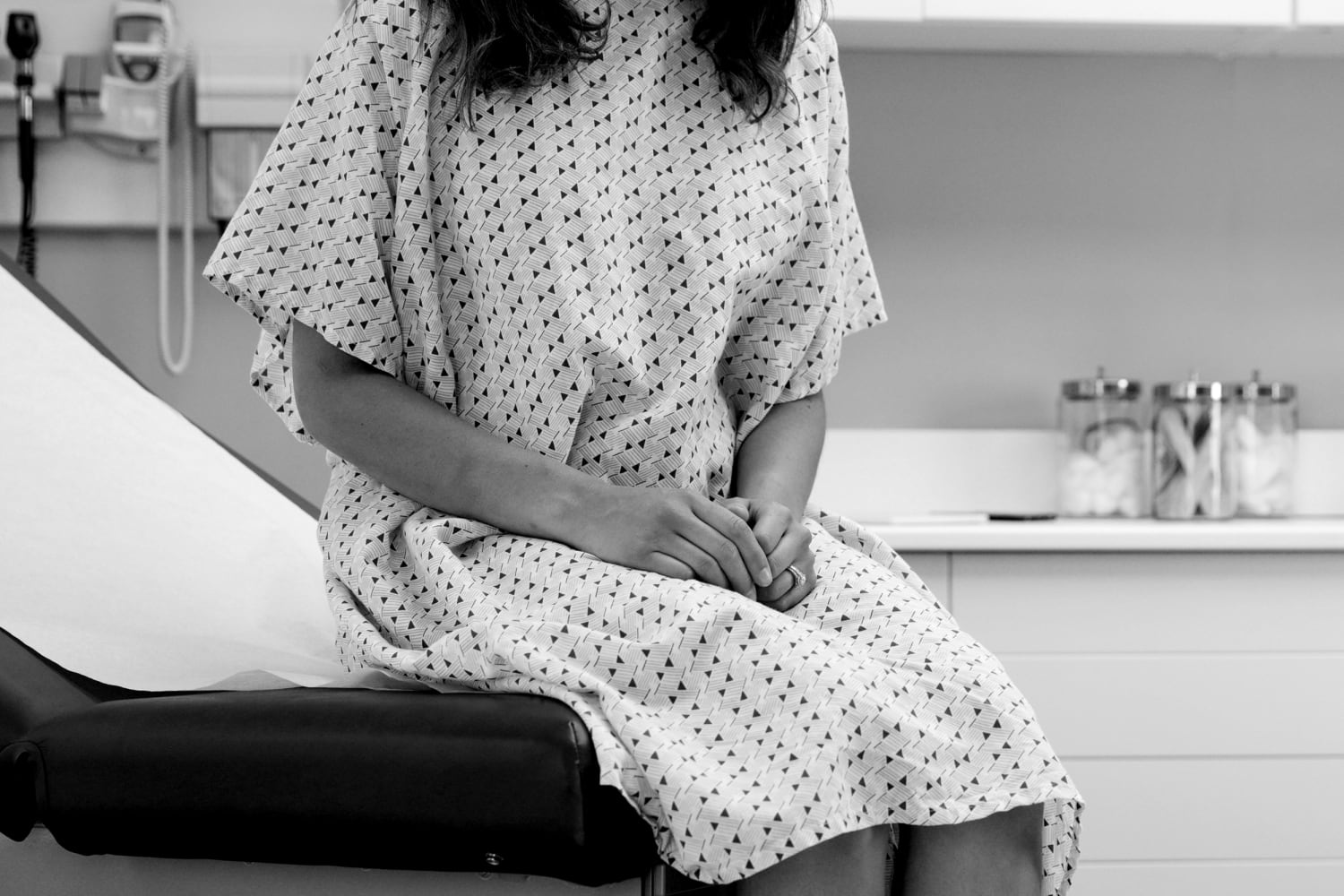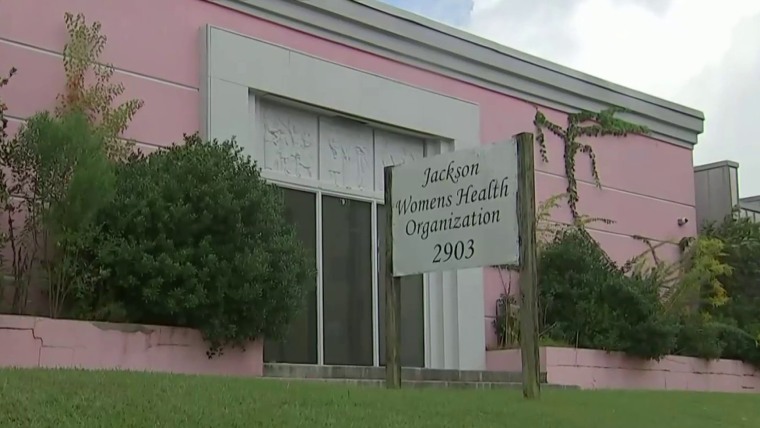After years of teaching Roe v. Wade as a family law professor, I experienced the stunningly painful irony of reading the leaked Supreme Court opinion in Dobbs v. Jackson Women’s Health Organization on the day I was diagnosed with invasive breast cancer. Overnight, at age 44, I became a person who would need an abortion if pregnant because cancer treatments would compromise a healthy birth and delay needed cancer care. I also became someone, like other hormone-positive breast cancer patients, who was advised to discontinue hormonal contraception because it might stimulate the growth of cancer cells.
In the aftermath of Roe’s being overturned, supporters of the move want to pretend that abortion access can be surgically extracted from women’s health care decision-making as a whole. Nothing could be further from the truth.
When I was diagnosed with cancer, the last things on my mind were pregnancy, birth control and abortion. Yet nearly all my medical appointments, tests and surgery itself were predicated on controlling reproduction and being able to terminate a pregnancy if needed.
Since the Dobbs leak, which had made it clear what the conservative-leaning court was poised to do, I have switched gears rapidly between being a reproductive rights scholar and a breast cancer patient. I also switched employment from Kentucky to Virginia. At a time when a woman’s constitutional right to bodily autonomy has been stripped away, this move across state lines — and into a different area of women’s health care — has revealed a searing reality: We now live in a world of vastly divergent health care systems for women.
As a breast cancer patient in Northern Virginia, I have thankfully found unbounded compassion, empathy, dignity, privacy and vitalizing human connection. I’ve been supported by patient’s rights advocates, counselors, cancer patient support groups and a multitude of local health care providers. I’ve been buoyed by the lived experiences of survivors and their caregivers, who’ve catalyzed their own hardships toward walking empathetically alongside others. This support infrastructure treats me as part of a larger ecosystem that informs my decision-making.
My mind swirls with the stresses of the last two months between attending medical appointments, canceling work commitments, switching jobs and insurance plans, watching bills accumulate and organizing child care. The mere thought of traveling to another state for an MRI, a biopsy or a procedure is staggeringly unthinkable as acceptable health care. For most, it would be insurmountable because of the costs and logistics alone. But this is what health care for pregnant women choosing to terminate their pregnancies now looks like in much of America — local patient care at predictable costs for some and health care in condemned exile behind insurmountable barriers for others.
While I’m at my most vulnerable and racing against the cancer clock, I’ve made critical decisions about how to treat this disease. I’ve made those choices protected by the trust of my doctors, family members, employer and insurer and — perhaps most bizarrely relevant now — my state government and my local prosecutor’s office.
In its evisceration of abortion access, the court is pretending that abortion is a stand-alone issue — separate from marriage, intimacy, family planning, parenting, employment, housing and health care. The lived experiences of our mothers, sisters and daughters reveal just how fictitious that framing is.
When I was diagnosed with cancer, the last things on my mind were pregnancy, birth control and abortion. Yet nearly all my medical appointments, tests and surgery itself were predicated on controlling reproduction and being able to terminate a pregnancy if needed. Cancer care also requires that I share my reproductive medical history about my prior pregnancies, the number of live births I’ve had, the medications I’ve taken, what prior surgical procedures I’ve had and who my other providers are. I answer honestly, not worried whether my answers are under surveillance by regulators or law enforcement.
In stark contrast, how will women’s health be handled comprehensively going forward in abortion-restrictive states like Kentucky? For a cancer patient facing a pregnancy or a pregnant person facing cancer in a restrictive state, the frightfully murky questions become how much cancer spread would be enough to justify a timely termination and what compilation of decision-makers holds this power (spoiler alert: It would not be me!)?
According to Kentucky’s trigger law banning abortion, for example, I would lose all decision-making autonomy and be subject to a doctor’s discretion about whether an abortion was necessary to prevent “the substantial risk of death“ or “serious, permanent impairment of a life-sustaining organ.” Is Stage 1 breast cancer enough? Stage 2? What relevance are my two children, for whom I desperately seek the best prognosis and longevity for myself? Does the law require me to endure the state-compelled progression of cancer? The answers to these questions would be entirely unclear. Doctors would have vast discretion to make decisions, largely free from accountability to pregnant patients. In reality, these doctors would treat me under an amorphous cloud of state-imposed liability, because the law makes it a class D felony to provide abortions outside those exceptions.
Come November, Kentucky will ask its voters whether the state Constitution should be amended to make it clear that it doesn’t ensure a right to an abortion. Many other states, including Virginia, will have reckonings in the courts or legislatures in the coming months. It’s searing to imagine cancer care, or any other health care, mired in stigmatizing government control, a surveillance state, criminalization and exile to out-of-state, out-of-pocket health care. As a society, we absolutely have the ability to ensure dignity, trust and support for women’s medical decisions holistically. In treating my breast cancer, I’ve experienced a medical model that lives out those values and trusts my informed decision-making.
There are transformative differences between these divergent health care models in women’s lives. It’s the difference between exile versus empowerment, degradation versus dignity, condemnation versus consultation. Because I am trusted, valued and humanized, I make medical decisions daily to choose life for myself.
As a society, we have the capacity to build that same ecosystem for all of women’s medical decision-making. For centuries, women across civilizations have held the weight of reproductive decision-making — and all of its complexities — with courage and rigor. Make no mistake about it, though: The stakes are an all-or-nothing framework for women’s health. Either we support women’s medical decision-making autonomy, or we do not. And we must.
Source: | This article originally belongs to Nbcnews.com










